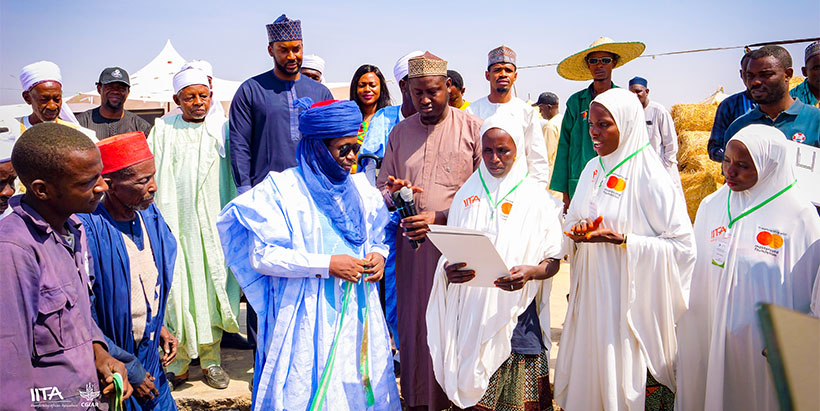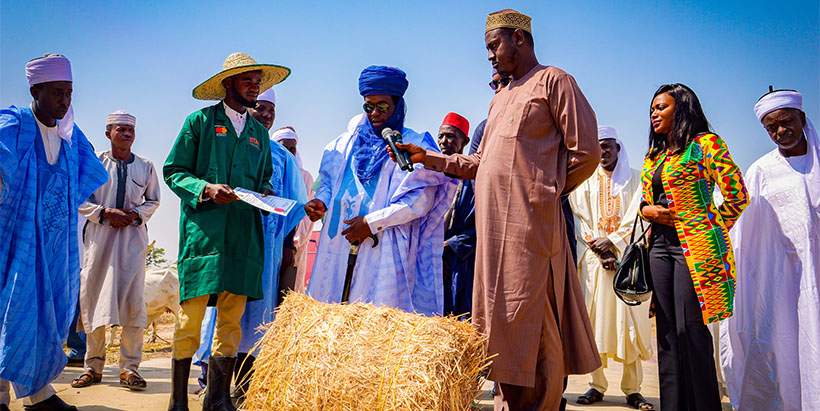The I-Youth and Agrihub Nigeria projects are spearheading a transformative initiative to modernize dairy farming in Adamawa State. In collaboration with Sebore International Farms, these projects have created employment opportunities for 500 youths along the dairy value chain. The initiative targets unemployed young people, equipping them with the technical and business skills required to excel in the dairy sector.
As part of the second cohort of the initiative, participants are being trained in specialized roles within the dairy industry. A total of 100 youths have been trained as veterinary service providers, ensuring timely and quality health interventions for dairy cattle. Additionally, 300 young farmers have undergone dairy production training and are now supplying milk to established markets in the state. Another group of trainees is focused on feed and fodder production, ensuring a consistent supply of nutritious food for cattle, which is crucial for optimal milk production.
During the participants’ graduation and input distribution ceremony, Adetola Adenmosun, a representative of the Youth in Agribusiness unit, highlighted the primary challenges faced by dairy farmers, including access to healthy cattle, quality feed, and reliable veterinary services. She urged the beneficiaries to apply their acquired knowledge to improve their businesses and contribute positively to their communities.
Sebore International Farm’s Managing Director, Aminu Nyako, emphasized the necessity of early investment in the youth to ensure their long-term contributions to food security and agricultural development. “The future is the youths, and we must invest heavily right now to ensure they have a place in dairy farming and agriculture in Adamawa State and across Nigeria. This initiative provides a complete, end-to-end intervention, integrating young people into the dairy sector,” he stated.
The District Head of Mayo-Belwa Community, Ardo Bamanga Dalil, also applauded the project’s impact, recognizing its role in creating employment opportunities and improving local livelihoods. He called on stakeholders to expand the initiative’s reach to benefit more young people in the region.


The event also featured sensitization sessions on financial inclusion and best practices in modern dairy farming and veterinary care. One of the participants, Husseini Zakariyau, shared his experience, expressing gratitude for the comprehensive training and veterinary toolkits provided. “The training taught me how to diagnose cattle illnesses, administer proper medications, and provide veterinary care. With the tools we received, we can now return to our communities and offer quality services to farmers,” he said.
As part of the project’s sustainability strategy, input distributions included high-yielding cattle breeds, nutrient-rich fodder varieties, and veterinary care kits. The trained farmers were organized into cooperatives: 30 cooperatives for dairy producers, 10 for feed and fodder producers, and 10 for veterinary service providers. This cooperative structure ensures long-term business sustainability, strengthens production capacity, and enhances profitability.
Last year, 300 farmers also benefited from similar training programs, receiving improved cattle breeds designed to boost milk production. The ongoing success of the initiative is paving the way for a thriving dairy sector in Adamawa and surrounding states.
For many young farmers, this initiative offers a pathway to dignified employment, financial stability, and long-term economic independence. With guaranteed market access through Sebore International Farms and enhanced production practices, these youth are becoming key players in a growing dairy industry. Their success stories reinforce the idea that with the right support, young people can lead the way in transforming agriculture, ensuring food security, and driving economic growth in Nigeria.